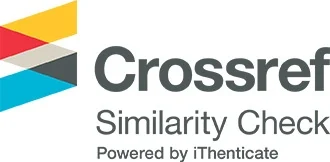Performance assessment of community pharmacist’s intervention in quality of care in Tripoli, Libya: A cross-sectional study
DOI:
https://doi.org/10.65137/lmj.v2i1.19Abstract
 Aim: Since the public is entitled to expect standard of excellence from the health sector and the community pharmacists are considered a vital ring in the health services chain. Hence, this quantitative study was carried out to evaluate the community pharmacists’ role of dispensing in the city of Tripoli, Libya. Methods: A cross sectional study involving 478 community pharmacists working in their own pharmacies in the city of Tripoli, Libya during the three month study period between Aug. and Oct. 2012 using a questionnaire consisting of 17 questions. Results: Twenty two pharmacists refused to participate in the study due to either lack of time or not interested. In response to the question “whether refused to dispense the illegal prescription†received negative response, which could be due to the bias terminology of the question itself. Over 65% of positive responses were obtained for other questions from the community pharmacists. On the question, “whether refused to dispense the Prescription Only Medicines (POM) without a prescriptionâ€, the response was unpredictable, where 80% of pharmacists answered ‘No’ which means they dispense the prescription only medicines without a prescription. On the other hand, more than 90% of the community pharmacists strictly advised the patients for duration of the treatment in terms of frequency and days which is a significant positive outcome. Pharmacists’ response (23%) towards education of smoking cessation was relatively disappointing. Only 1.8% of pharmacists registered the prescriptions dispensed per day. Excessive workload of pharmacists and patients’ attitude (e.g. treating the pharmacists as a medium of drug dispensing only and lack of interest in counseling) which endangers patient safety. Limited involvement of pharmacists in patient education is another observable deficit. In spite of Libyan community pharmacists’ elevated level of approach, their practice was still at a small level. Conclusion: Updated acquaintance of knowledge is a compulsory for Good Pharmacy Practice (GPP). There is a dire need of more efforts to educate and learn the community pharmacists by professional performance, continuous education and training programs which should be supported by the ministry of health, Libya to elevate their professional knowledge. These programs will build up enough expertise gradually among community pharmacists and to keep this experience in serve of the community. Further, proper periodical supervision by Libyan drug regulatory authorities over implementation of the standards is required.
Â








